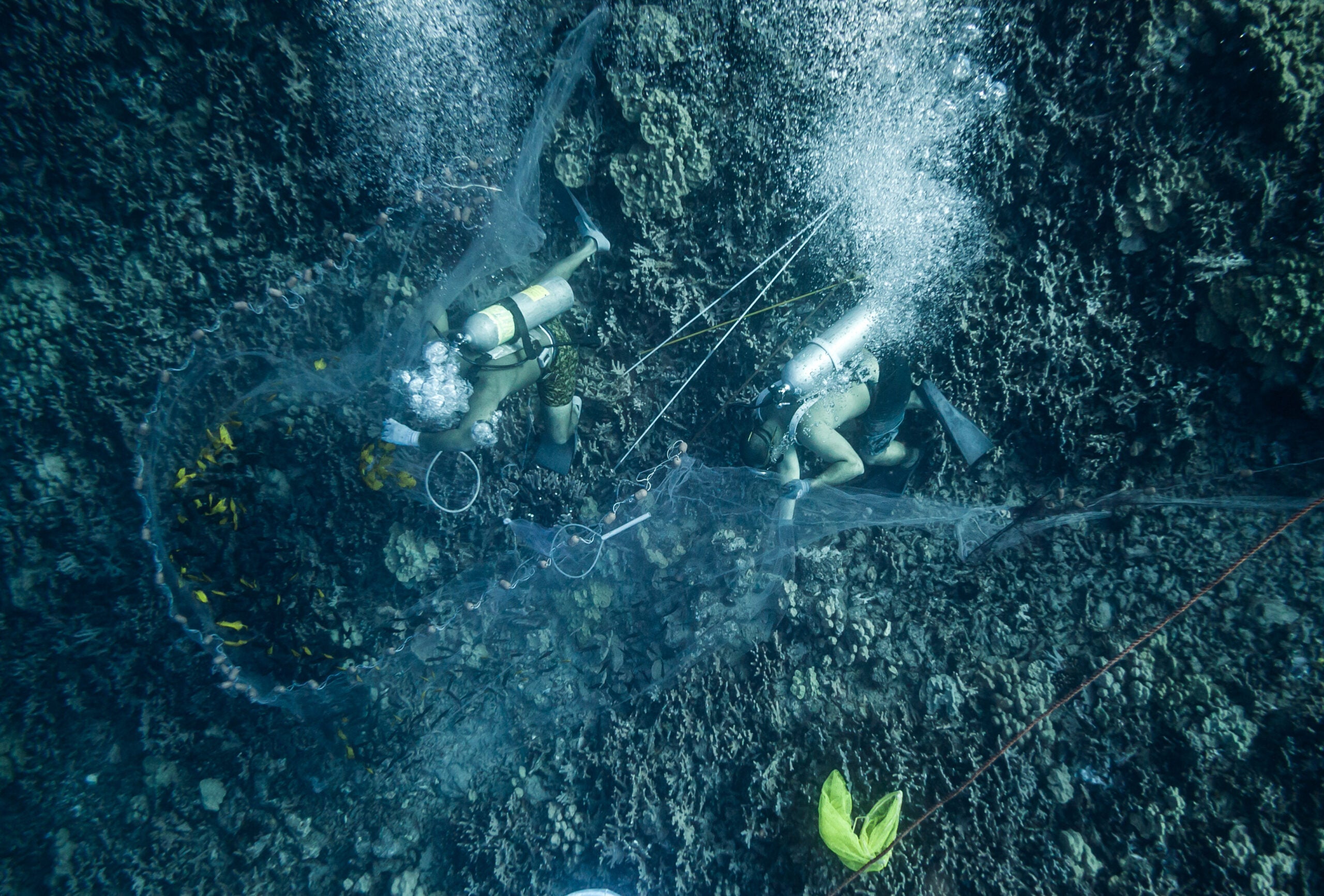Conservationists Challenge State Agency on Rampant, Unregulated Aquarium Collection Harming Hawai‘i’s Reefs
After a 2017 Hawai`i Supreme Court decision requiring environmental review to issue aquarium collection permits, state agency decided permits weren’t necessary anymore
Contact
A coalition of Native Hawaiians and conservation groups has warned the Hawaiʻi Department of Land and Natural Resources (DLNR) that the agency could end up back in court if it doesn’t end a policy allowing the practically unlimited extraction of reef fish and other aquatic creatures for the aquarium pet trade without any environmental review, circumventing a court injunction halting such activities until the review process is completed.
The policy began after the Hawaiʻi Supreme Court ruled in September 2017 that aquarium collection under permits is an action subject to environmental review under the Hawai‘i Environmental Policy Act (HEPA), and the circuit court subsequently voided all unexpired permits and placed a moratorium on renewing or issuing new permits pending the environmental review process.
Under the new policy, DLNR has been renewing and issuing new commercial marine licenses to aquarium collectors without also requiring aquarium collection permits or HEPA review, as long as collectors don’t use fine-meshed nets and traps. Yet, the agency does nothing to verify the methods collectors claim to be using. It would be extremely difficult to gather the types and amounts of animals that the industry has continued to collect without using fine-meshed gear, which has always been the primary means for gathering aquarium fish. DLNR’s policy has enabled the aquarium trade to harvest more than half a million marine animals without any environmental review during the past two years.
Victoria Martocci
Kole, a type of surgeonfish native to Hawaiʻi, is a prized traditional food source and suffers widespread aquarium collection in the state.
“Instead of embracing the courts’ rulings and ensuring that the environmental effects of aquarium collection are properly considered, the agency has given the industry a free pass to continue collecting without any oversight,” said Earthjustice attorney Mahesh Cleveland. “Deregulation for the benefit of private industry is completely contrary to DLNR’s constitutional mandate to safeguard our marine life for present and future generations.”
Earthjustice sent a letter today on behalf of a coalition of community groups and cultural practitioners, including For the Fishes, Willie & Kaʻimi Kaupiko, Mike Nakachi, and Center for Biological Diversity, alerting DLNR that the policy violates HEPA, state aquarium collection laws, and the public trust doctrine under the Hawaiʻi Constitution.
“We were shocked to learn that under the agency’s watch, the industry has continued ravaging Hawaiʻi’s reefs without any assessment of environmental harm, despite the courts’ rulings,” said Rene Umberger, Executive Director of For the Fishes. “Taking hundreds of thousands of marine animals for private profits obviously requires vetting under the environmental review process.”
The collected animals are primarily herbivorous reef-dwellers that serve important functions in the coral reef ecosystem, such as helping to control algae growth. Studies have shown that reducing the abundance and diversity of reef fish and important invertebrates affects a reef’s ability to respond to stresses or disturbances.
“Telling the aquarium trade it no longer needs permits or HEPA review to continue operating makes a mockery of the agency’s duty to conserve and protect our reefs and fish populations so that they can support public purposes, including traditional and customary practices such as subsistence fishing,” said Kaʻimi Kaupiko, who regularly fishes with his family in Miloliʻi, the state’s last traditional Hawaiian fishing village.
Mel Malinowski
The aquarium trade has extracted hundreds of thousands of yellow tang from Hawaiʻi’s reefs since the Umberger decision.
“Hawai‘i’s reefs are the lifeblood of kanaka maoli and our communities,” said Mike Nakachi, a Native Hawaiian cultural practitioner. “We simply can’t afford to allow the aquarium trade to continue lawlessly putting private profits over the health and protection of our public trust resources.”
“The agency’s decision to deregulate the aquarium trade threatens Hawaiʻi’s precious reef ecosystems, which are already at risk due to climate change,” said Maxx Phillips, Hawaiʻi Director of the Center for Biological Diversity.
DLNR is overseeing the ongoing court-ordered environmental review process, currently underway for West Hawaiʻi and Oʻahu. But unless this policy is changed, the industrial-scale extraction of marine animals purportedly using non-fine-meshed gear will continue without any environmental review under HEPA.

Additional Resources
About Earthjustice
Earthjustice is the premier nonprofit environmental law organization. We wield the power of law and the strength of partnership to protect people's health, to preserve magnificent places and wildlife, to advance clean energy, and to combat climate change. We are here because the earth needs a good lawyer.